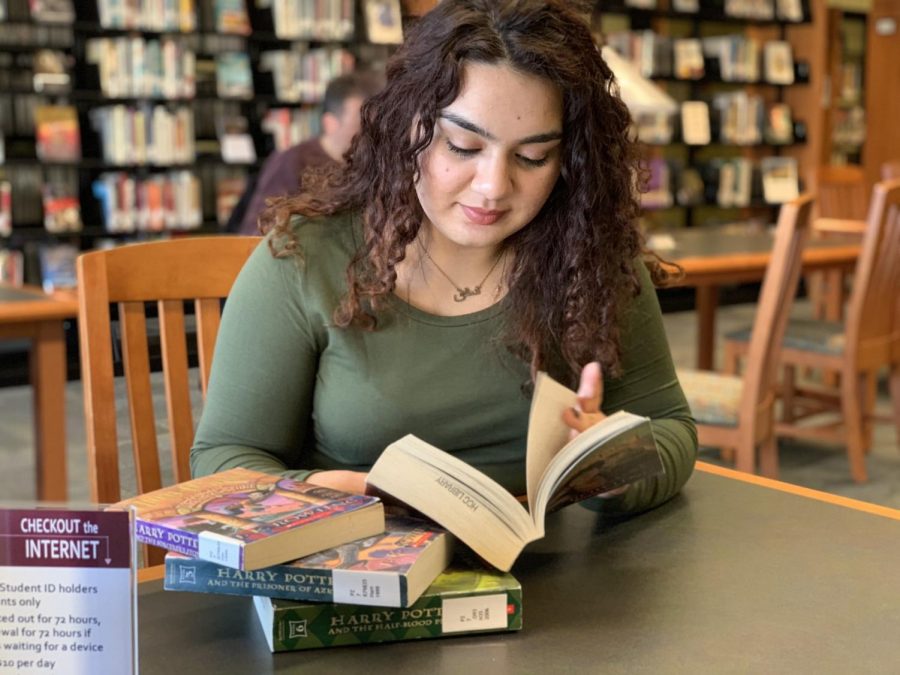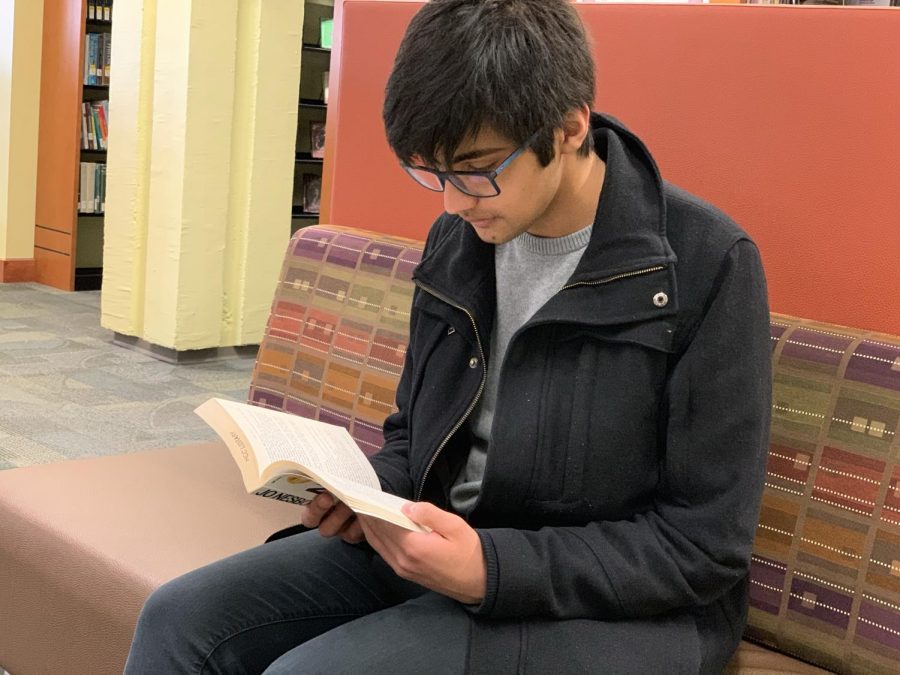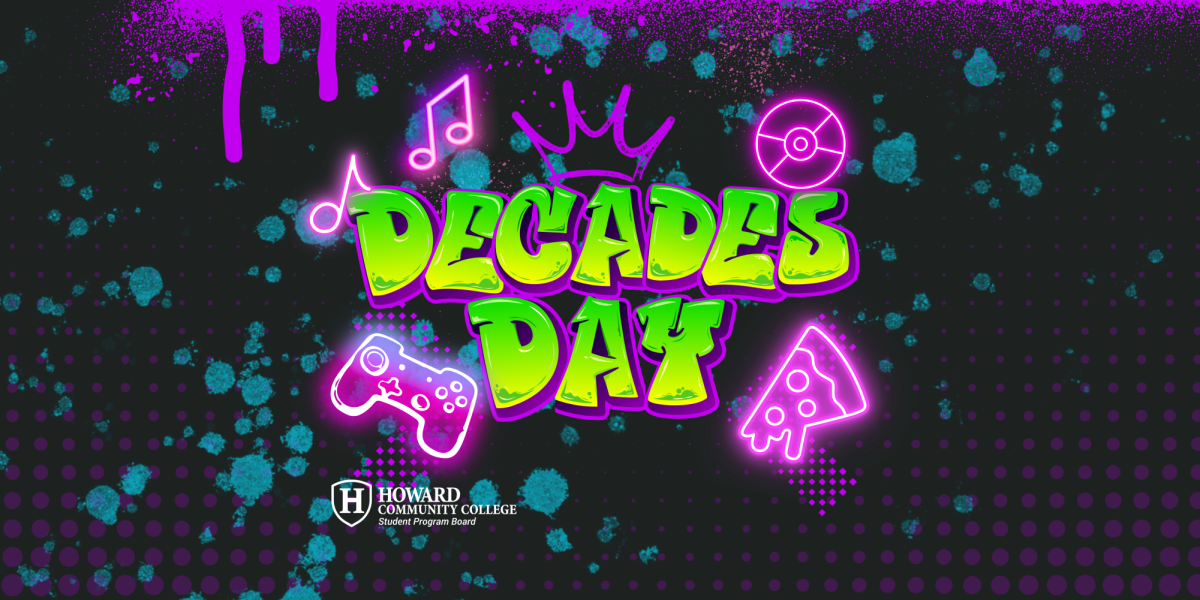The Virtue of Reading Fiction
Hamza reading a book in the library
March 12, 2019
Have you ever scoffed at someone engrossed in a Dostoevsky novel, turned up your nose at a friend reading Shelley or Bronte, or gaped at someone eyeball-deep in David Foster Wallace’s massive epic, Infinite Jest? If so – or if you don’t know any of those authors – pay attention. Your lack of empathy may be showing. Literally.
Many studies and reviews conducted in the last twenty years have observed the powerful correlation between reading fiction and well-developed social skills, including empathy (Hakemulder 2000, Oatley 2016), substantiating long-held – and admittedly self-serving – claims made by fiction authors. One 2006 study showed participants who recognized the most fiction writers scored higher on empathy tests and exhibited greater mentalization, the ability to recognize mental states in oneself and others (Mar et al. 2006).
Several of these studies pointedly distinguish ‘literary fiction’ from ‘genre fiction,’ citing character depth as the primary difference between the two. Characters in literary fiction are fully and profoundly developed, but their thoughts are not always explicitly described; their choices and actions indicate their psychological state. This requires readers to infer the mentality of the characters – a literary skill that, by all evidence, translates into ‘real’ life.
The sad truth is most Americans don’t read for pleasure. The 2018 American Time Use Survey conducted by the Bureau of Labor Statistics determined that on a given day, only 19% of Americans over the age of 15 read for pleasure. Data from the NEA, Pew Research Center, and Gallup show consistent declines in leisure reading over the last thirty years. According to The Washington Post, Americans read an average of only seventeen minutes per day in 2017. Yet a 2018 Nielsen report revealed that on average, American adults spend four hours and forty-six minutes per day watching television; long hours spent watching television are associated with lower life satisfaction and poor health. So please, bring balance to the force – keep reading.

A 2016 Yale study determined that older adults who read books for at least thirty minutes per day have significantly reduced mortality rates, and further notes “cognitive engagement may explain why vocabulary, reasoning, concentration, and critical thinking skills are improved by exposure to books as books can promote empathy, social perception, and emotional intelligence” (Bavishi, Levy, & Slade 2016). The study emphasized that reading other forms of media, such as newspapers and magazines, did not confer these same benefits.
A common grievance against fiction is that it is a form of ‘escapism’, a frivolous mental departure from our sometimes unpleasant reality. If escapism is frivolous, why did the Nazis ban and burn hundreds of thousands ofbooks, including numerous works of fiction, that expressed ideas contrary to the Nazi regime or allowed the oppressed to take brief refuge in literature from the cruel shackles of persecution? Award-winning science fiction author Ursula K. Le Guin said it best: “The direction of escape is toward freedom.”
Escapism is not inherently problematic: it is a form of deliberate dissociation, which is likely good for our mental health (Gelkopf & Meyerson 2004, Morgan & Taylor 2013). While dodging the challenges – and rewards – of reading, video games, meditation, and sports offer a similar ‘escape,’ focusing our awareness and taking us out of our internal dialogues. You may have heard this state of energetic focus and selective awareness called ‘the zone’ or ‘flow.’ When we ‘flow,’ we leave much of the physical world behind, blocking out unwanted signals to enter an ideal state, escaping to a mental landscape conducive to the task at hand.
Fiction is also good for your imagination. To borrow heavily from an essay by acclaimed author Neil Gaiman, all you need to do to understand the power of imagination is look around. The walls that surround you, the roof above you that keeps the winter air off your scalp, the windows that allow you to see the outside world while you remain cozily entrenched in your chair, even this newspaper in your hands once existed only in someone’s imagination. Someone had to imagine them before they could make them, before they could become real. The worlds, people, and things an author has imagined and created out of words are no less real for existing only on the page. Reading about them, inspecting them with your mind’s eye, toying with them, and collaborating with the writer to realize them in their most fantastic and perfect version is as real and meaningful as any other pursuit – perhaps more so. Einstein, an undisputed genius of science and mathematics – inarguably indispensable fields to our Western eyes – is attributed with having said, “If you want your children to be intelligent, read them fairy tales. If you want them to be more intelligent, read them more fairy tales.”
By now there is a chance you understand or even agree with most or all of what is written here; yet you might maintain that reading is not for you. Perhaps you don’t like to read. Perhaps you don’t think you are good at reading, or worse, that reading is boring. If that is the case, it is not your fault – you simply haven’t found the right book yet. This is especially common if, as a child, the adults in your life did not teach you the wonders of books and stories, if they did not read aloud to you, if they did not encourage discovery and exploration, if they did not have the time or the means or the effort or the knowledge to reveal to you all the best things about reading – or if they tried, but the tales they offered did not glitter and shine to brighten your eyes, but merely appeared dull and lifeless. It may not be their fault either; they may not have known any better.
The awesome power of reading is such that you can teach yourself to do it, and that you become a better reader just by doing it. So you just have to find something you want to read about. The glory of fiction is there are stories about everything – regardless of your interests, someone has written about it. The HCC Library has an excellent collection, organized and shelved in the P section (Language and Literature). If you have some idea what you might like to read about, the librarians can help you find what you’re looking for, or stop in and browse by yourself; you might be surprised to find something catches your interest. Maybe it’s a title, an author, even the cover art – some books draw your attention, calling you to investigate. Think of it as making a new friend; books, even the fictional ones, are full of real people – so don’t be afraid to pick one up and start a conversation.







